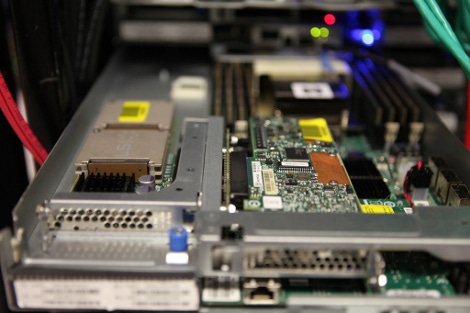Rackspace Makes Big Push into Managed Services, Tweaks Cloud Pricing
Provider confident that managed cloud is a growing niche it can be a dominant player in

Building on its tradition of extreme hands-on support, Rackspace added two managed services offerings, provided and billed for on a pay-as-you-go basis.
The cloud provider is offering two levels of managed services, an entry-level one, called Managed Infrastructure, and a more involved and expensive Managed Operations package. Customers using the latter can have Rackspace techs do everything from helping them design and deploy cloud infrastructure to installing, managing and monitoring their applications.
"We're going all-in in the managed cloud space," Rajeev Shrivastava, vice president of product marketing at Rackspace, said. "The [managed services] market is growing, and we think we have a niche in the managed cloud space."
The services are aimed at companies that have fairly sophisticated IT organizations but for whom IT operations are not a crucial strategic differentiator. They are also for companies that simply don't have IT staff who can deploy and run cloud workloads.
Shrivastava made it clear that the two service packages are not for companies with unique IT requirements specific to their workloads who treat the way they run IT as a business advantage.
Managed Infrastructure, the entry-level package, offers staff experts available to provide technical guidance when needed. The all-inclusive Managed Operations package provides the customer with an account manager and staff to manage their cloud infrastructure and applications on an on-going basis.
The second package includes DevOps automation, or automated operations aimed to help customers deploy applications faster.
Here's a back-to-back comparison of the two new service packages:

*Available with DevOps Automation service only
Rackspace sells both services as utilities (on-demand, pay-as-you-go) together with its cloud infrastructure, but requires minimum commitments from the customers to use them: $50 minimum for Managed Infrastructure and $500 minimum for Managed Operations.
One of Rackspace's close competitors, CenturyLink Technology Solutions, also recently introduced utility-style managed services. Billing them as managed services for smaller companies that don't have the deep pockets usually required to use traditional managed services, CenturyLink emphasized that it did not require minimum commitments from customers.
More cash back for breaking SLAs
Rackspace also said it will now return 10 times its standard compensation rate, up to 100 percent the customer's monthly invoice, in case it breaks the SLA for managed cloud.
It also introduced another new SLA scheme, wher a customer can warn the provider about an upcoming event that will require a cloud capacity burst ahead of time and have the provider handle infrastructure provisioning to absorb the "peak event." If Rackspace fails to maintain uptime during the event, it will pay the customer 10 times the standard SLA, up to 200 percent of their monthly invoice.
"If you give us seven to 10 days' notice, we will make sure that your application is up and running," Shrivastava said. "We will give you all your money back, if we don’t perform for you."
The 10x SLA pay-out scheme is currently in test mode with a number of select customers, but the company plans to roll it out into general availability in the near future, he said.
Comparing apples to apples
Piling on, Rackspace said it will now break out the rate it charges its customers for raw cloud infrastructure services and the additional support and services charges separately. By doing this, the company hopes to show customers a clearer picture of what it charges when they compare it to other cloud infrastructure providers.
Rackspace's cloud services cost more than the raw infrastructure offered by Amazon Web Services or Google Compute Engine, and the provider wants to emphasize that its offering includes much more than simply cloud servers or storage capacity.
About the Author
You May Also Like






